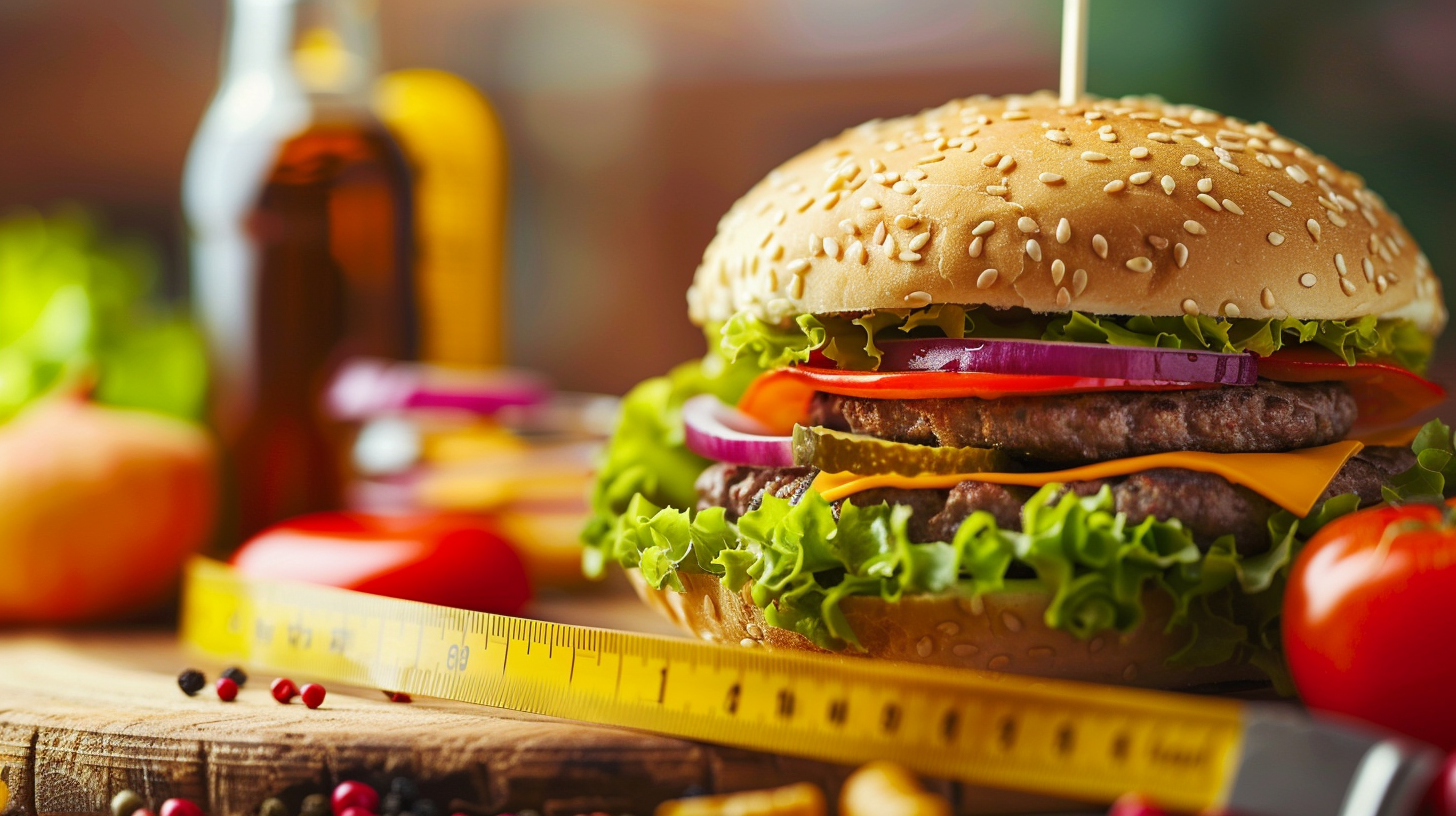Table of Contents Show
Like a slow-moving flood that’s gradually engulfed communities, the obesity epidemic has silently spread across the globe, leaving health professionals and policymakers scrambling for solutions. We’re witnessing an unprecedented rise in obesity rates, driven by complex factors including diet, sedentary lifestyles, genetics, socioeconomic influences, and psychological contributors. As we untangle this intricate web, it’s clear there’s no one-size-fits-all solution. But what if we could pinpoint the most impactful levers for change? Join us as we explore the multifaceted causes of obesity and discuss innovative, holistic approaches to turning the tide.
Key Takeaways
- Dietary habits and nutritional choices play a critical role in managing obesity.
- Physical inactivity and sedentary lifestyles significantly contribute to the obesity epidemic.
- Genetic, hormonal, and metabolic factors personalize obesity risk and weight management strategies.
- Socioeconomic disparities affect access to healthy food and opportunities for physical activity, exacerbating obesity rates.
The Role of Diet and Nutrition
At the heart of the obesity epidemic, our dietary choices and nutritional habits play a pivotal role in shaping our health outcomes. We’re in a time where access to a wide variety of foods has never been greater, yet we’re facing a crisis. It’s clear we’ve got to take a hard look at what we’re putting on our plates and how it’s affecting our bodies.
We’ve all heard the saying, ‘You are what you eat,’ and it’s never been more accurate. High-calorie, low-nutrient foods have become the norm in many of our diets, leading us down a path to poor health and obesity. We’re bombarded with options that are convenient and tasty but detrimental to our well-being. It’s time we reclaim our freedom to choose healthier foods that nourish our bodies rather than harm them.
Making a shift towards whole foods, rich in fruits, vegetables, lean proteins, and whole grains, isn’t just about losing weight—it’s about gaining a life filled with energy and vitality. We’ve got the power to transform our health, one meal at a time. It’s not about restrictive diets that leave us feeling deprived; it’s about making informed choices that celebrate our bodies’ needs.
Let’s embrace the freedom to explore a variety of nutritious foods that cater to our unique tastes and lifestyles. Together, we can turn the tide on the obesity epidemic by choosing foods that serve our health and happiness. It’s in our hands to create a future where our diets are our allies in achieving vital health.
Impact of Sedentary Lifestyles
We’ve explored how diet and nutrition play an essential role in the obesity epidemic, but it’s equally important to examine how sedentary lifestyles contribute to this growing problem. The risks associated with physical inactivity are significant, affecting our health in ways we can’t ignore. We’ll also look at effective strategies for counteracting these sedentary habits, offering hope for a healthier future.
Physical Inactivity Risks
Sedentary lifestyles greatly increase our risk of developing chronic health issues, including heart disease and diabetes. We’re not just talking about the occasional day spent lounging on the couch. It’s the consistent lack of movement that chips away at our health, silently but steadily. When we sit for hours on end, our metabolism slows, and our bodies struggle to regulate sugar levels and blood pressure. This isn’t just an issue for the elderly or those already at risk; it affects all of us, cutting across age and activity levels. We cherish our freedom, yet we’re unwittingly caging our bodies into a sedentary lifestyle, putting our very liberty to live fully and healthily at risk. Let’s acknowledge this threat to our well-being and take steps to protect our health.
Counteracting Sedentary Habits
Recognizing the dangers of a sedentary lifestyle, we must now explore effective strategies to combat these unhealthy habits. It’s about reclaiming our freedom, the liberty to live life fully and healthily. Let’s consider these actions to break free from the chains of inactivity:
- Stand up for our health: Literally. Standing desks offer a simple yet revolutionary way to counteract sitting’s dangers.
- Move with joy: Dance, hike, or play a sport. Find movement that brings us happiness.
- Break the cycle: Every hour, take a brisk five-minute walk. It’s a small step towards a big change.
- Embrace community: Joining exercise groups or sports clubs not only keeps us active but also connects us with like-minded individuals aiming for a healthier life.
Together, we can turn the tide against sedentary habits and march towards freedom and well-being.
Genetic and Biological Factors
Beyond lifestyle choices, we must also consider the role of genetic and biological factors in the obesity epidemic. Our genetic makeup can predispose us to obesity, influence our hormonal balance affecting weight, and dictate the speed of our metabolic rate. Understanding these elements is essential for developing more effective solutions.
Genetic Predisposition to Obesity
Genetic factors play a significant role in an individual’s susceptibility to obesity, highlighting the complexity of its causes. We’re all born with a unique set of genes, some of which can predispose us to gain weight more easily than others. It’s not just about willpower; it’s about the hand we’re dealt.
- Our genes can influence how our bodies process foods.
- Some of us burn calories at a slower pace, no matter how hard we try.
- Certain genetic markers can increase our appetite, making us feel hungrier.
- Even our ability to resist unhealthy foods is partly determined by our DNA.
Understanding this helps us recognize that fighting obesity isn’t solely a matter of personal choice but also involves tackling these inherent challenges.
Hormonal Imbalances and Weight
Hormonal imbalances play a crucial role in regulating our weight and can greatly influence our efforts to manage it. We’re at the mercy of our bodies’ intricate systems, where hormones like insulin, ghrelin, and leptin dictate our hunger, metabolism, and fat storage. Unfortunately, when these hormones are out of sync, losing weight becomes a tougher battle. It’s not just about willpower; it’s a biological challenge that many of us face without even realizing it. By understanding these hormonal influences, we can tailor our approach to weight management, giving ourselves a fighting chance to achieve our goals. Let’s not forget, knowledge is power. By acknowledging the role of hormones, we’re better equipped to tackle weight issues head-on, ensuring our efforts align with our bodies’ needs.
Metabolic Rate Variations
While we navigate the complex landscape of hormones affecting weight, it’s also important to ponder how our metabolic rate, influenced by genetic and biological factors, plays a significant role in our health journey.
- We’re not all dealt the same hand; our bodies process and burn energy uniquely, making weight loss a personal journey.
- Recognizing these differences empowers us to tailor our approach to health, breaking free from one-size-fits-all solutions.
- Understanding our metabolic rate can open the door to optimizing our health, guiding us towards practices that resonate with our bodies.
- Embracing this knowledge allows us to navigate our health path with grace and self-acceptance, liberating us from the chains of comparison and frustration.
Let’s celebrate our individuality by seeking solutions that honor our unique metabolic rates.
Socioeconomic Influences
Among the myriad factors contributing to the obesity epidemic, socioeconomic status plays a pivotal role in shaping dietary and lifestyle choices. It’s not just about what we’re eating, but how our environment and income levels influence these choices. We can’t ignore the reality that healthier food options often come with a higher price tag. For many, especially those living in lower-income areas, access to affordable, nutritious food is a significant challenge. Fast food and processed items, cheaper and more accessible, become the go-to, despite their negative health impacts.
We also see a stark difference in physical activity opportunities. Higher-income neighborhoods tend to have more parks, gyms, and safe places for exercise, while lower-income areas may lack these facilities. It’s not just about personal choice; it’s about what options are available and affordable to us.
Addressing these socioeconomic disparities is critical. We advocate for policies that increase access to healthy foods in underserved areas and support community initiatives that provide safe, affordable places for physical activity. It’s about creating an environment where making the healthier choice isn’t a luxury, but a viable option for everyone.
We’re in this together, and it’s time we recognize that solving the obesity epidemic means tackling the root causes, including socioeconomic factors. Let’s push for changes that empower everyone to live healthier lives, free from the constraints of their economic situation. It’s not just about individual freedom of choice but about ensuring that everyone has the freedom to choose health.
Psychological Contributors
How often do we consider the deep psychological factors that drive our eating habits and lifestyle choices, contributing profoundly to the obesity epidemic? It’s easy to overlook the power of the mind in fostering habits that lead us down the path to obesity. Yet, understanding these psychological contributors is vital in seeking freedom from the constraints of this epidemic.
We’re surrounded by a culture that often promotes unhealthy eating as a form of emotional comfort or reward, leaving us trapped in a cycle that’s hard to break. The stress of daily life, combined with the instant gratification offered by high-calorie foods, creates a recipe for disaster. It’s not just about the choices we make; it’s about the unseen forces steering those choices.
Consider the emotional impact of these psychological factors:
- Stress and Anxiety: The relentless pressure of modern life can lead us to seek solace in food, using it as a temporary escape.
- Emotional Eating: We often eat not out of hunger, but to comfort ourselves, to suppress or soothe negative emotions.
- Low Self-Esteem: Negative body image and low self-confidence can create a vicious cycle of overeating and guilt.
- Boredom: With the monotony of daily routines, eating becomes an activity for excitement or to simply pass the time.
Recognizing these psychological triggers is the first step towards regaining control. It’s about breaking free from the invisible chains that bind us to unhealthy habits. By acknowledging these factors, we empower ourselves to seek solutions that address not just the physical, but the emotional and psychological aspects of obesity.
Solutions and Preventative Measures
Addressing the obesity epidemic requires a pivotal approach that tackles both our lifestyle choices and the psychological factors driving them. We’ve got to embrace strategies that empower us, letting us make informed decisions without feeling constrained. It’s about striking a balance, where we’re informed but not overwhelmed, guided but not forced.
First off, we need to foster environments that encourage physical activity in our daily routines. Whether it’s making cities more walkable or creating more accessible community sports programs, it’s about removing barriers to being active. We’re talking about fun, engaging ways to move more, not just the mundane gym routines that can easily become a chore.
Then, there’s the food we eat. We’re advocating for clear, straightforward labeling on food products. It’s about knowing exactly what’s in our food so we can make choices that align with our health goals. We’re also pushing for better access to affordable, nutritious food for everyone. It shouldn’t be a luxury to eat healthily.
Education plays a pivotal role too. We’re not just talking about dry, forgettable pamphlets on healthy eating. We mean interactive, relatable education that sticks with you, covering everything from cooking classes to understanding emotional eating. Knowledge is power, but it’s got to be engaging.
Ultimately, we’re all in this together. It’s about creating a supportive community that encourages healthier choices without judgment. We’re aiming for a future where taking care of our health is a natural part of our lives, not a constant battle. Together, we can turn the tide on obesity, but it starts with empowering each individual.
Conclusion
As we stand at the crossroads, gazing down the path that leads away from the clutches of the obesity epidemic, it’s clear that our journey is a shared one. We’ve identified the sinister shadows cast by poor diet, sedentary habits, and hidden genetic foes, alongside the societal and psychological chains that bind us. Now, armed with knowledge and unity, we’re poised to light the torches of change. Together, we’ll navigate through the darkness, embracing solutions that promise a healthier horizon for all.








